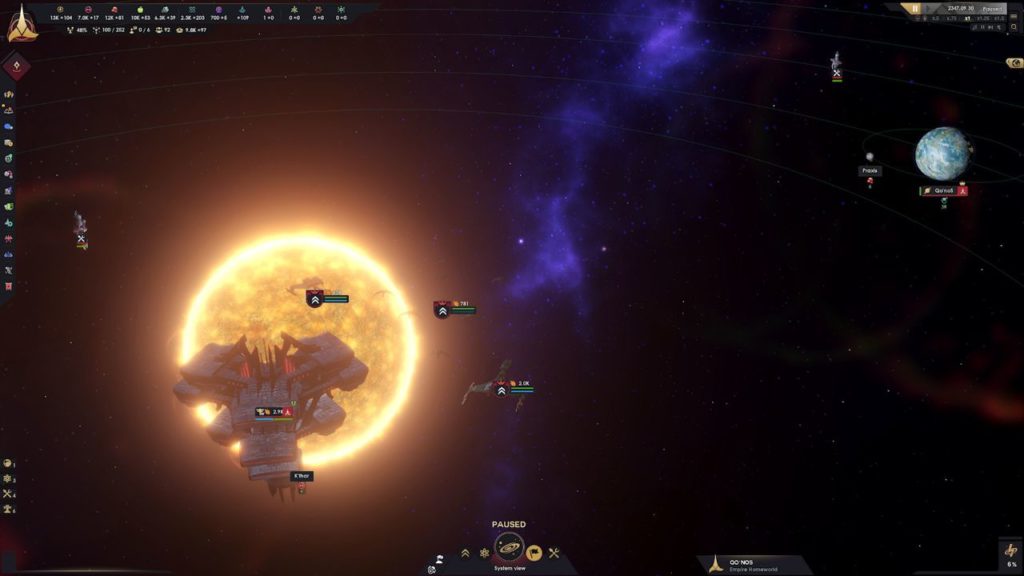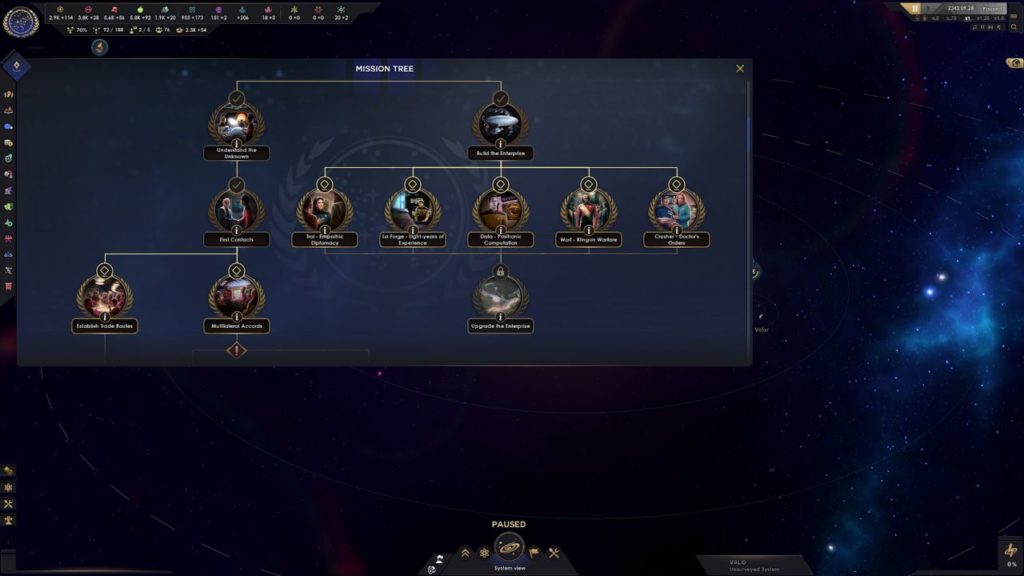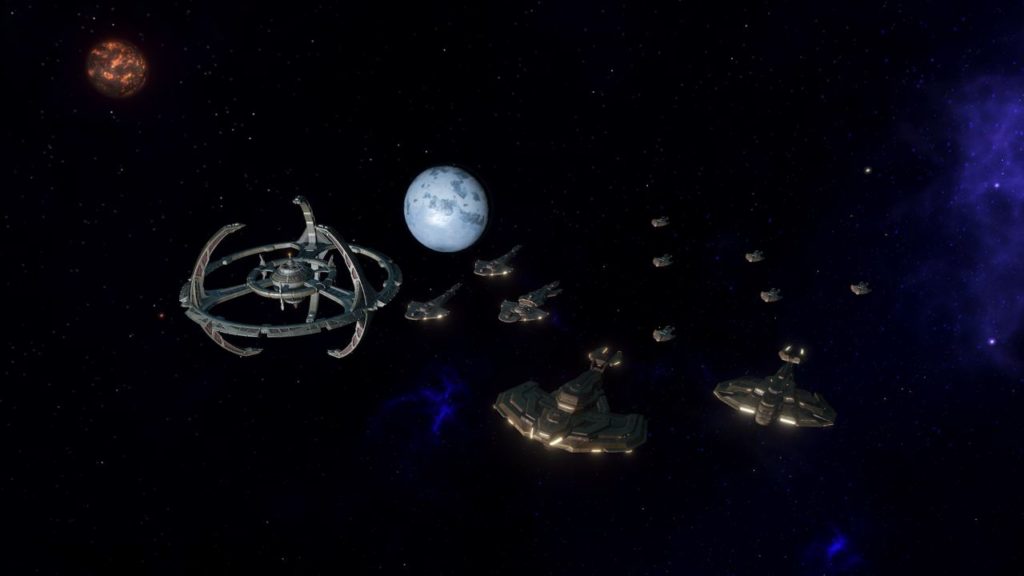Star Trek: Infinite is huge, complex, and a Trekkie’s dream | Hands-on preview
Star Trek has been in my life one way or another for as long as I can remember. My grandparents watched the original series whenever I was around (or at least it seemed to be on whenever I was around), and my parents watched The Next Generation religiously. I watched the movies, I got really into Deep Space 9 and Voyager, I even liked the Chris Pine reboot Trilogy. I’m not a Trekkie though (I haven’t watched any recent series, not Enterprise, Discovery, Strange New Worlds, or Picard), I’m just someone who knows a little bit about a little bit where Star Trek is concerned. I tell you this only because anyone who isn’t a full-fat Trekkie isn’t going to get quite the intended experience from Star Trek: Infinite.
This is not a starship simulator. You won’t be leading away teams, steering the Enterprise into battle with Romulan Warbirds, or having trouble with tribbles (seriously, I’m plumbing the depths of my knowledge here). Infinite is a grand strategy in the Star Trek universe. It’s analogous to Paradox’s own Stellaris, and while there is combat and there is a lot of exploration, you’ll be mostly dealing with the minutiae of governing one of four primary factions.

There’s the Federation, which is the closest thing you can get to picking Human. The main planet is Earth, and the various artwork depicts familiar faces like Picard, Beverly Crusher, and Will Ryker. Their creed is pioneering exploration, and peacekeeping. Then you’ve got Klingons, a warlike race focused on honour and glory, who respect tradition even when forging new worlds. Romulans are cunning, often duplicitous, but make excellent diplomats and spies. And then there are the Kardashians, who’ve built a social media empire in California and focus on modelling work and… Hang on. These notes are wrong. It’s Cardassians, and they like subjugating others for fun and profit. Apologies.
Once you’ve picked your faction you’re dropped straight into a galaxy on the verge of war. The preview build I played included a comprehensive tutorial and thank God, because Star Trek: Infinite is as deep, sprawling, and exhausting as any Paradox strategy game. And I say exhausting not necessarily as a criticism. Infinite demands your attention on multiple fronts at all times, and believe me you’ll feel like you’re running a whole galactic empire.
You’ll need to oversee everything, from surveying new systems, constructing starbases, shipyards, research and mining facilities, to establishing governments, trade routes and embassies. It’s up to you to determine what a planet you’ve colonised will primarily produce, as you’ve got almost a dozen different resources to manage. Not only that, but your empire must be defended with fleets of warships; you’ll need science ships to explore, and colony ships to bed down new habitats for your people. Oh, and you will have to govern those people, assigning them jobs, even resettling them on other worlds if necessary.

Star Trek Infinite is, fittingly, huge. Imagine all this, but with things like trading and diplomacy on top. Relationships with other factions must be maintained at all times, or the simplest matter can escalate to all-out war. And this isn’t Civiliasation where you can pump out soldiers from a barracks building at a rate of knots. Constructing everything takes ages in Infinite, even when you speed up the game time. Of course, research projects unlock new buildings, bases, projects, weapons, and technologies, sometimes speeding up processes. Not to mention, you can go out and explore the galaxy for rare resources, finding abandoned terraforming projects, or primitive species to study from afar.
As you play, random events will occur that demand attention. You might uncover a conspiracy that threatens war between two factions and have the option to choose sides or stay neutral. You might encounter an entirely new species and help or hinder their progress to the stars. You’ll deal with pandemics, uprisings, and cosmic anomalies, and you’ll do it all at the same time. Infinite throws things at you at such a high rate that you’ll come to really appreciate the quiet moments when the galaxy just shuts up for a few minutes and lets you think.

A tactical pause allows you to queue up commands and survey the state of your empire peacefully, and you’ll need it given just how much is going on at any one time. If you click through an event too quickly you could make a crucial mistake, and in my experience so far, war is simply to be avoided. Invariably the other factions will be more advanced than you because it takes so, so long to research things and build new fleets. Also should a ship go missing or encounter a hostile force, it requires a science vessel and military fleet to investigate the scene, often drawing your battleships away from your Colonies.
The thing is though, it’s all so incredibly Star Trek. That’s obvious, yes, but more than any other Star Trek game I’ve played Infinite leans totally and completely into the brand. Armchair generals may well still get a kick from the strategy, but this is a Trekkie’s wet dream – especially considering the DLC possibilities. This is more than just Stellaris in a Starfleet uniform; Infinite is one-hundred percent Star Trek through and through. It’s early days, but to my knowledge no other game gives you this much control over Roddenberry’s beloved universe. It’s not easy going, but if you truly want to boldly go where no one has gone before, Star Trek: Infinite is your best chance.
Star Trek: Infinite is set for release on PC, but has no current release date.





